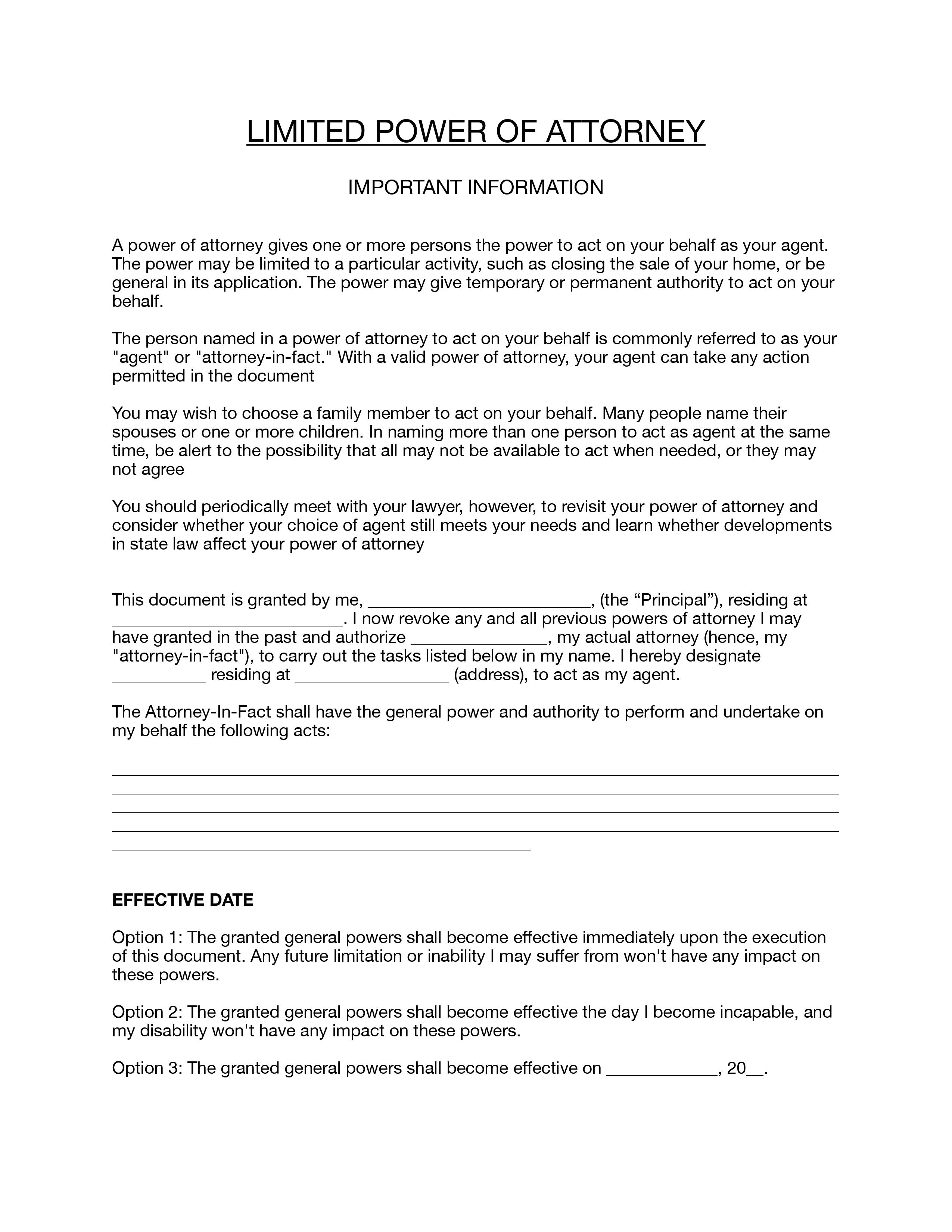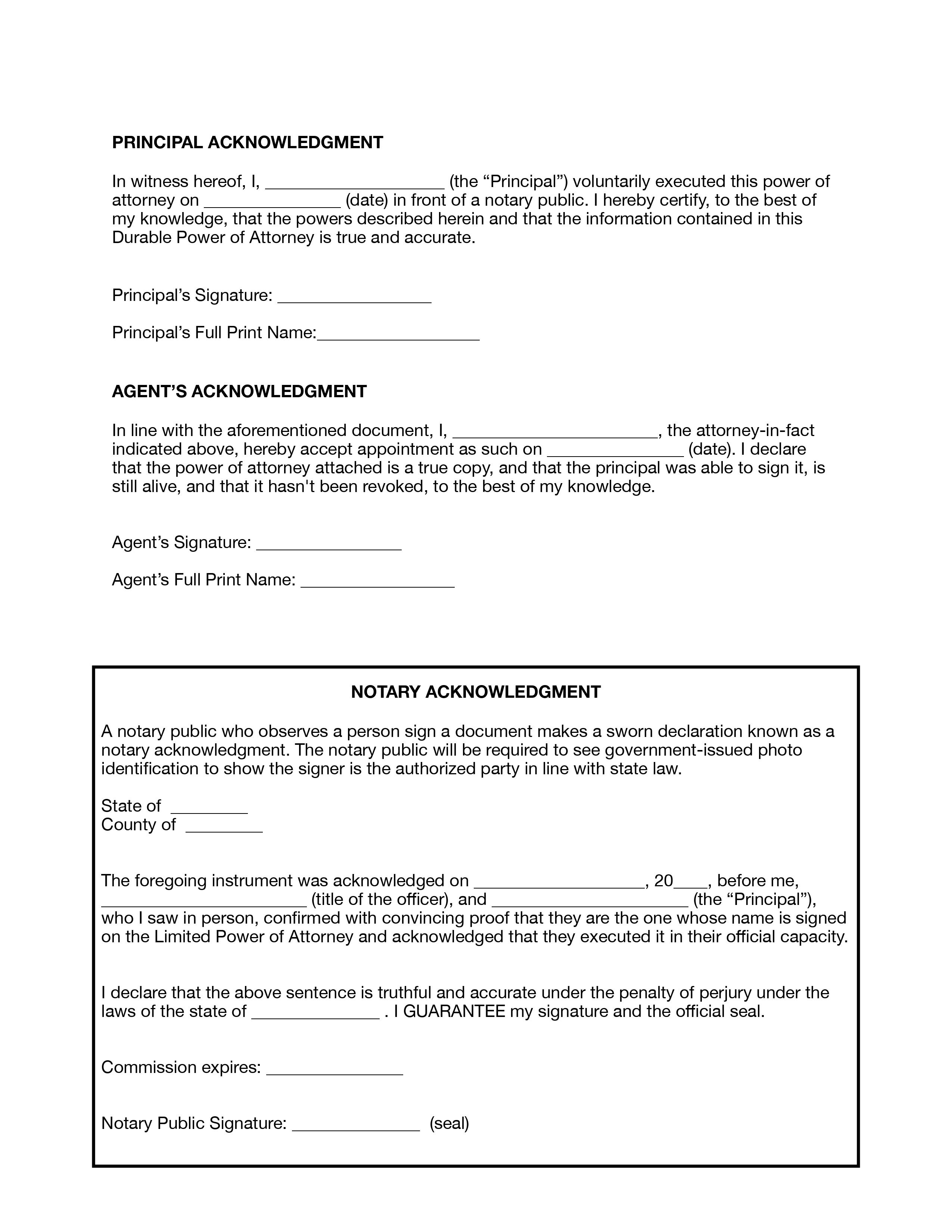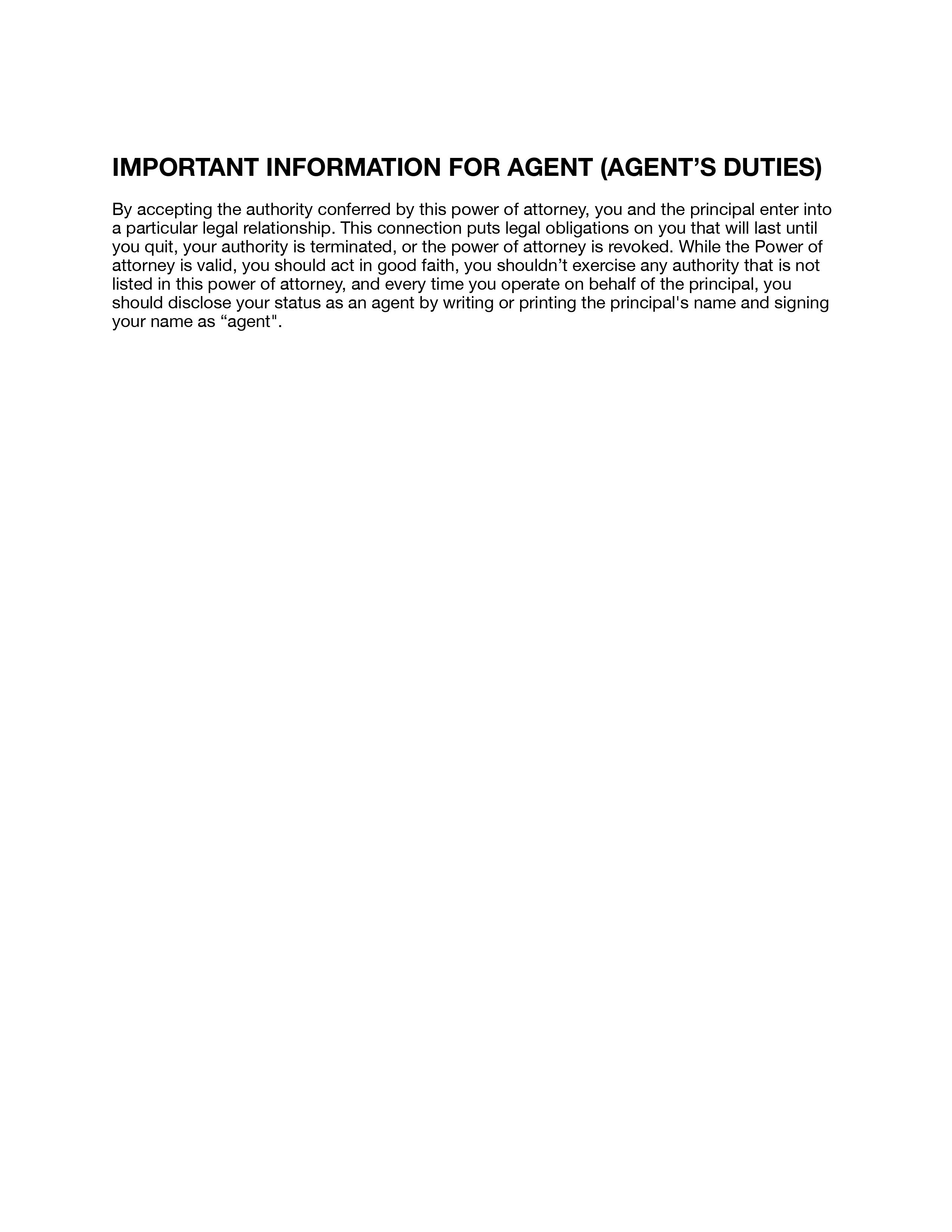Limited Power of Attorney
Get Started
Additional Instructions
Principal Information
The "principal" refers to the person who is appointing an agent to act on their behalf.Agent Information
The Agent (also referred to as the attorney-in-fact) is the person who is given the authority to act on behalf of the principal.Successor Agent Information
Effective Date
Final Details
First Witness (You can fill later)
Second Witness (You can fill later)
Frequently Asked Questions
Generally speaking, you should choose the state where the principal (the person granting the power of attorney) resides or where the legal matter at hand is taking place should be chosen.
A limited power of attorney is a legal document that grants someone (the agent or attorney-in-fact) the authority to act on behalf of someone else (the principal) in a specific and limited capacity. This means that the agent is only authorized to perform certain tasks or make certain decisions on behalf of the principal, as defined in the document.
A limited power of attorney can be used for a variety of purposes, such as allowing someone to sign legal documents on the principal's behalf, handle specific financial transactions, or make medical decisions for the principal. The scope and duration of a limited power of attorney can vary depending on the needs of the principal, and can be tailored to meet specific requirements.
Here are some examples of powers that you may grant on a limited power of attorney:
- Real Estate Transactions: The power to buy, sell, lease or manage real estate property on your behalf.
- Financial Transactions: The power to access and manage bank accounts, investment accounts, or other financial assets on your behalf, including the power to write checks or make electronic transfers.
- Business Transactions: The power to sign contracts, manage business affairs or conduct business transactions on your behalf.
- Legal Transactions: The power to sign legal documents or enter into legal agreements on your behalf, including the power to represent you in court.
- Medical Decisions: The power to make medical decisions on your behalf, including decisions about treatment, medications or medical procedures.
- Government Transactions: The power to sign government forms or applications on your behalf, including tax forms, immigration forms or other government documents.
It is important to note that the powers granted on a limited power of attorney should be specific and clearly defined to avoid any misunderstandings or confusion. Additionally, the powers granted should only be those that are necessary and relevant to the particular situation or transaction for which the limited power of attorney is being used.
In addition to specifying the powers granted to your agent, you may include additional instructions or requirements in a limited power of attorney to ensure that your wishes are carried out in the manner you desire. Here are some examples of additional instructions that you may include:
- Limitations on Powers: You may wish to include specific limitations on the powers granted to your agent, such as a maximum dollar amount for financial transactions or a requirement that the agent consult with you before making certain decisions.
- Reporting Requirements: You may require that your agent provide regular updates or reports on their activities, such as financial transactions or business dealings, to ensure that they are acting in your best interests.
- Compensation: You may specify whether or not your agent will be compensated for their services and, if so, the amount and method of compensation.
The principal is the person who creates the document and authorizes another person to act on their behalf. The principal is the individual who grants the authority to the agent to make financial decisions for them if they become incapacitated or unable to make decisions for themselves.
The agent, also known as the attorney-in-fact, is the person who is authorized by the principal to act on their behalf. The agent is appointed by the principal to make financial decisions for them if they become incapacitated or unable to make decisions for themselves.
The requirements for acknowledging a limited power of attorney can vary depending on the state or jurisdiction where the document is being executed. In general, most states require that a Limited POA is signed by two witnesses who are not related to the principal by blood or marriage.
In addition to witnesses, some states may require the Limited POA to be notarized. Notarization involves a notary public verifying the identity of the principal and witnesses and certifying that they signed the document voluntarily and without coercion.
A notary acknowledement is a legal certification by a notary public that a person has signed a document in their presence and that the signature is genuine. The notary acknowledgment provides a level of assurance that the document is authentic and can be relied upon in legal proceedings.
To obtain a notary acknowledgment, the document signer must appear before the notary public, show proper identification, and sign the document in the notary's presence. The notary then affixes their official seal or stamp to the document and signs it to indicate that they witnessed the signature.
In some states in the United States, notarization of a Limited POA is required, while in others it is not. However, even if notarization is not required, it can be a good idea to have the document notarized, as it can provide additional evidence of the validity of the document in case of a dispute.





